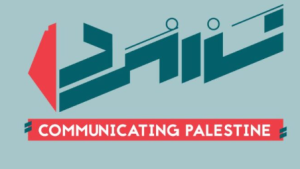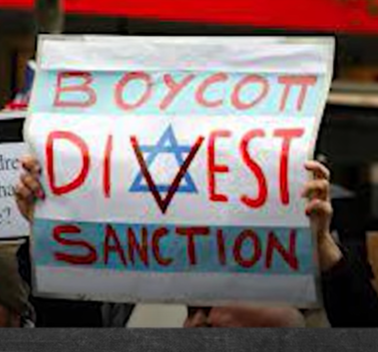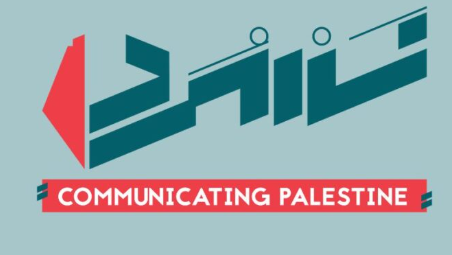20 August 2025
An article in the Hebrew edition of Haaretz confirms that the general boycott of Israel is still in its early stages but the academic boycott is already hitting hard. Here is an auto-translation of the relevant section of the article.
8 August 2025
This is, except for a single branch: Israeli academia. The boycott in the academy is already present, and develops at a frightening speed. The situation in the academy is so difficult that the board of directors of the universities established a special task force, headed by Emanuel Nahshon, a former senior official in the Foreign Ministry. “The crisis began with the student demonstrations on the campings against Israel,” says Nahshon, “but this has evolved from there and instead of the students – today these are the faculty members who boycott Israeli researchers, and even entire universities that refuse to work with Israeli institutions.
The data that Nahshon’s mission team collects from Israeli universities are alarming. During 2024, 200 reports of boycotts of Israeli scientists were collected. It is estimated that in 2025 there will be 700 reports, and the rate exceeds 50 per month. The boycott events are varied: rejection of articles, rejection of requests for research grants, postponement of invitations to conferences and of course refusal to attend conferences in Israel, rejection of invitations to sabtateurs and even refusal to give a letter of recommendation to a faculty member who is a candidate for promotion.
Contrary to the impression that has been created, the boycott is not only in the humanities and social sciences, on the contrary. Most of the reports of boycott cases are currently concentrated in the rigid scientific branches, such as the life sciences or the exact sciences. Contrary to the impression that has been created, the boycott is not only encompassing American campuses: today it is the European universities that lead the boycott, which also includes universities in Canada and Australia
Nearly 30 different universities around the world have already officially announced that they are boycotting academic institutions in Israel. There are also important and leading universities such as Amsterdam, Rotterdam, Geneva, and even a less formal boycott on the part of the Sorbonne in Paris. Almost all universities in the Netherlands and Belgium and many of the universities in Spain officially boycott Israel. “In the U.S., it hasn’t happened yet, but it’s only because of the fear of Trump,” Nahshon estimated. “In three years, American universities will boycott us.
The institutional boycott of Israel is so sharp that Israel’s relationship with the world’s most important research grant fund – the European Union Horizon Foundation, which Israeli researchers and Israeli startups receive grants of more than NIS 1.5 billion a year – are in danger. The Belgian University of Ghent, which is boycotting Israel, appealed to the European Commission and demanded that Israel be expelled from Horizen. Ghent also tried to sweep other universities. With an important achievement, the European Union rejected the demand, saying that researchers cannot be discriminated against a national basis. Ghent, in response, withdrew from Horizen herself.
According to Prof. Malat Shamir, the vice president of internationalism at Tel Aviv University, the number of boycott reports that are coming to her by the staff in Tel Aviv increased from 2-3 a week to 10 or more a week today. “The situation in medicine and life sciences is the most difficult, much more than the spiritual science,” she said, “because of the dependence of researchers in these fields in research grants.”
Shamir spoke about two veteran life science researchers, who rejected the publication of their articles out of hand – that is, their article was not even transferred to the peer review phase. In both cases, these were magazines that never rejected an article out of hand, and the reasons for rejection were also baseless. In other cases, the editors of the journals do not respond to the Israeli researcher’s request.
Tel Aviv University also suffers from a wave of malicious smears. Thus, the courses that the university gives to the security forces, most of them courses in the humanities, are actually slandered that the university is “training soldiers”; and the connection of the Tel Aviv Medical School with the Abu Kabir Medical Institute gave rise to a rumor that the university hides in its refrigerators 73 Palestinian bodies. The assistance that the university provides to reserve personnel has also been presented worldwide as a collaboration with the army. “It’s not just a radical left that boycotts us,” Shamir said, “these are also people from the mainstream. They are not related to BDS, they simply cannot continue conscientiously to work with Israel.”
How heavy is the damage? According to Shamir, she has already accumulated 250 boycott reports, which means that one in five faculty members at Tel Aviv University has been exposed to a boycott. In addition, an alarming figure was published regarding one of Horizon’s sub-founds, which places grants to young researchers at the beginning of their careers: It turned out that in the past year the number of Israeli researchers’ winnings in the same fund has dropped from 30 to only 9.
The Innovation Authority, which is responsible for the relationship with the European Union, is reassuring that this is not necessarily due to a boycott. According to the authority, the fund in question changed procedures, and competition for the grants increased after two countries (Switzerland and the United Kingdom) began to submit grants to it. However, there is grave concern that the European Union, which has prohibited an official boycott of Israel, allows for a quiet and unofficial boycott.
“The main problem is with young researchers who are at the beginning of their careers,” Shamir said. “They must establish their status by publishing articles, conference performances and research grants. If they don’t have it, they won’t be able to evolve, and Israeli science will fade.” Shamir even raises a fear of brain drainage: the amount of applications for unpaid leave and change on a sabbatical at Tel Aviv University is increasing on an alarming scale
Nachshon, equipped with extensive knowledge from the Ministry of Foreign Affairs, believes that this is a deliberate campaign, which is its purpose: to crush Israeli science, and thus to crush Israel’s innovation and economic engine. “It’s strategic damage,” he says, “every good thing in Israel — the high-tech, the defense industry, the agricultural prosperity — has come out of the universities. They marked the Israeli progress, and they come to destroy.”
Who’s “they”? In the assessment of Nahshon, “Those who think that these are only ‘conscientists’ are wrong. It’s an organized campaign, behind which countries stand, and Israel is just his first victim. This is reminiscent of the spread of communism in the West in the 30’s: there are useful idiots here, who make use of them are Qatari, Russian, Iranian and Turkish interests
Nahshon pointed out that Qatar financed Middle Eastern studies departments at universities around the world, and thus put up generations of students working in the field. He also wonders how the University of Ghent could afford to retire from the huge Horizon program. Why are the universities attack? They are the stronghold of liberalism. The academies in the world actually had to stand to the right of Israeli academia. The reason is that the goal is progress and innovation – and therefore the universities in the country must be crushed.”
Not everyone agrees with this assessment of Nahshon, but it is certainly impossible not to be shocked by the position of Foreign Ministry Director General Eden Bar Tal, when asked to help in the struggle against the academic boycott. Bar Tal, reportedly on Channel 12, told the heads of the academy that “the leftist academia is taking out Israel’s slander in the world, and brought it on itself.”
The Foreign Ministry, which did not really deny that the words had been said, revealed its ignorance: an attack on Israeli academia is not an attack on the left-wing strongholds, but about Israel’s growth engines, and what ensures its economic and military superiority. To say that this is a university problem, is actually to cooperate with BDS
Can the blatant and overt attack on Israeli academia be the first step that predicts a comprehensive boycott of Israel? Among the professional levels in the government, the fear is exactly that. There is no doubt that Israel will not be able to meet an economic and political boycott, for example, if the UN and the European Union lead such a move similar to what was done in the case of South Africa, but at the moment the risk seems low. A more significant risk is that of a quiet boycott, that is, business disconnections that are increasing and going. These, along with the academic boycott, can cause serious economic damage.











